- Fierce fighting breaks out near junta’s No. 344 Artillery Regiment in Yekyi Twsp
- Indigenous communities in Chittagong Hill Tracts struggle amid ARSA threats
- Weekly Highlights from Arakan (Feb 16 to 22, 2026)
- Hindus struggle with livelihood hardships amid job shortages in Arakan State
- Equipment from Chinese-owned VPower plant in Kyaukphyu to be fully relocated amid growing conflict
Muslim leaders condemn attempts to undermine social harmony in Arakan
The Arakan Army (AA), which currently controls much of Arakan State, has prioritised fostering social harmony between Arakanese and Muslim communities as part of rebuilding efforts in the region. Muslim administrative and religious leaders said they strongly condemn those attempting to undermine this process.
20 Sep 2025
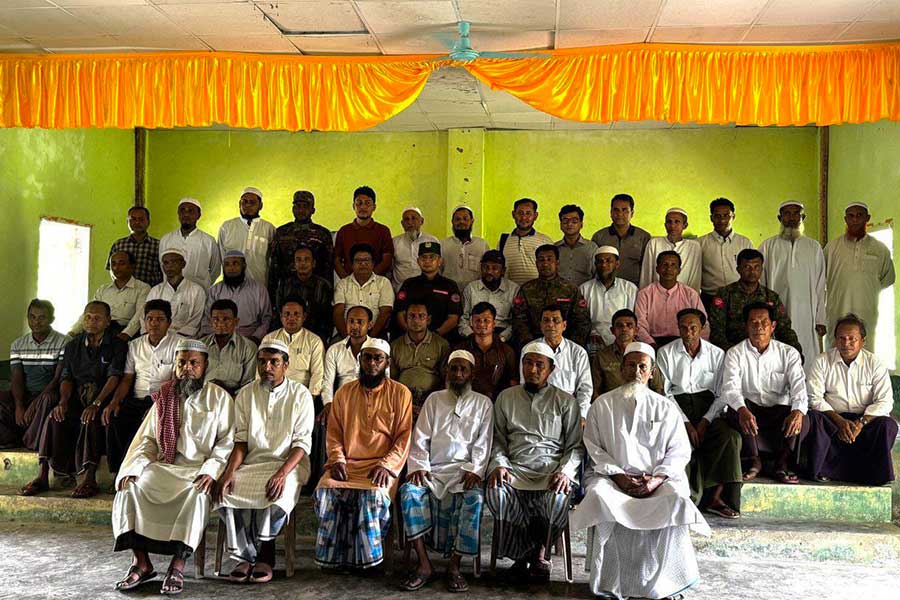
DMG Newsroom
20 September 2025, Maungdaw
The Arakan Army (AA), which currently controls much of Arakan State, has prioritised fostering social harmony between Arakanese and Muslim communities as part of rebuilding efforts in the region. Muslim administrative and religious leaders said they strongly condemn those attempting to undermine this process.
Accusations of attacks by Muslim armed groups such as ARSA (Arakan Rohingya Salvation Army) and RSO (Rohingya Solidarity Organisation), as well as pressure from overseas Muslim activists, are said to be harming relations and coexistence between Rakhine and Muslim communities on the ground.
"We, the local people living here, do not accept the words of Muslim armed groups and overseas activists, nor do we accept their attempts to instigate. What is truly needed right now is to work together with the current administration, the United League of Arakan/Arakan Army (ULA/AA), to build the region, to ensure peaceful coexistence among all communities, and to achieve stability and harmony," said Mawlawi Abdul Haik from Buthidaung Township.
Actions by Muslim armed groups and overseas activists are reportedly inciting bloodshed and disrupting the prospect of coexistence for Muslims in Arakan.
ARSA and RSO remain militarily active along the Arakan-Bangladesh border, with ARSA reportedly launching frequent attacks against the AA. In 2017, 113 Hindu villagers from Kha Maung Seik and Yebawkya in Maungdaw Township were massacred by ARSA. The group has also been accused of forced recruitment, killings of dissenters, and other violent acts up to the present day.
U Maung Maung Aye, vice-chairman of the Maungdaw District Muslim Affairs Council, said: "ARSA and RSO justify their so-called revolution by claiming they are fighting. In reality, they solicit funds from people abroad who don't fully understand the situation, and they use that money for business. This is not genuine politics."
Meanwhile, overseas Muslim activists have accused the ULA/AA of committing killings, human rights abuses, and other violent acts against Muslims. Local Muslims, however, say such allegations are inconsistent with the ground reality and only fuel further conflict instead of supporting coexistence.
"Those abroad present their own interests to the international community without properly investigating what is happening here. This damages the genuine social harmony we are trying to build," said Maungdaw District Muslim community advisor Jury Barser.
Muslims in areas under ULA/AA control, including Buthidaung and Maungdaw, say they are currently able to practice freedom of religion, and participate in healthcare, education, economic activities, regional development, and administration.
Tens of thousands of Muslims are also reportedly working alongside others in efforts for social harmony and regional development in Arakan State.
"Everyone here has already suffered. Many went hungry. Many lost their jobs, their homes, their livelihoods. Now, what people are thinking about is how to move forward. At this moment, we must prioritise harmony and support the ULA/AA for the good of our towns and villages," said U Tin Aung, chairman of the Maungdaw District Muslim Affairs Council.
Clashes are currently ongoing between ARSA and the AA along the northern Maungdaw stretch of the Arakan-Bangladesh border.
The conflict's impact continues to be felt. Due to Myanmar military atrocities in 2017, more than 700,000 Muslims fled from Arakan to Bangladesh, according to UNHCR statements.
Further displacement caused by clashes between the Myanmar military and the AA, along with natural population growth, has pushed the Rohingya refugee population in Bangladesh to over 1.1 million as of August 13, 2024, according to UNHCR.




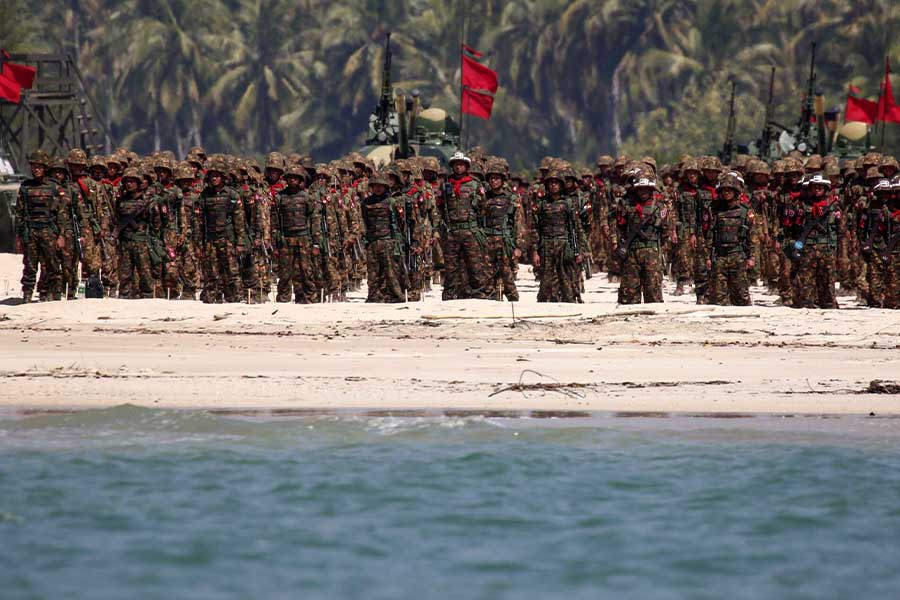
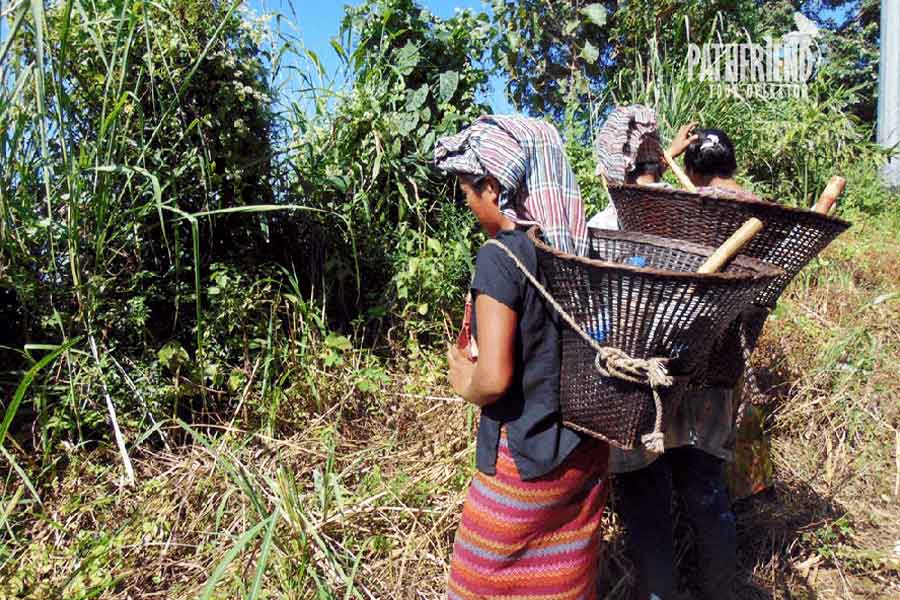
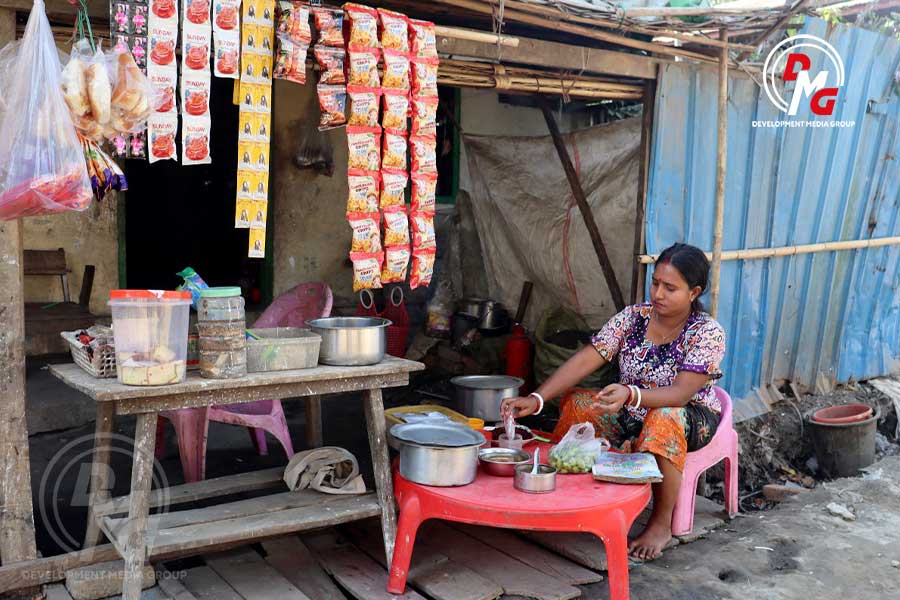
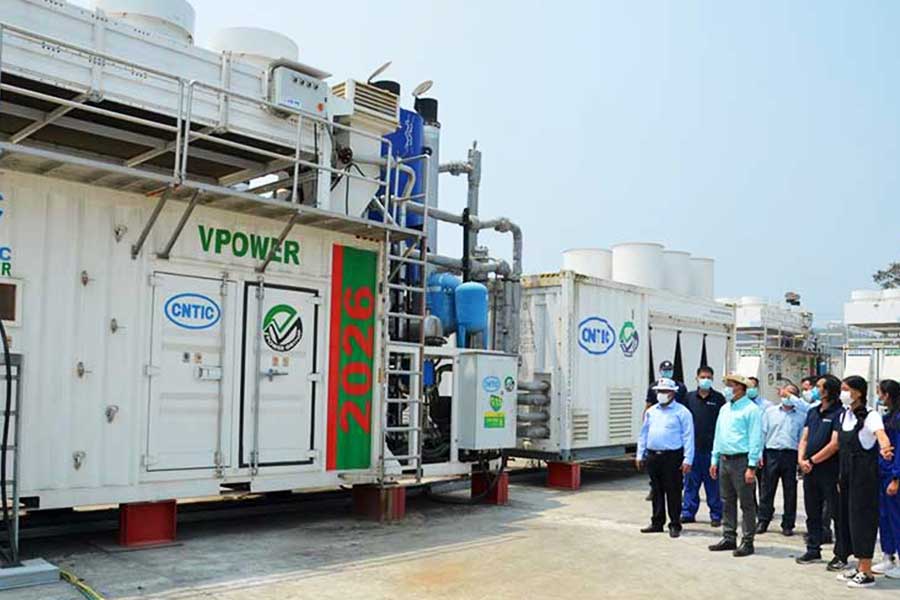
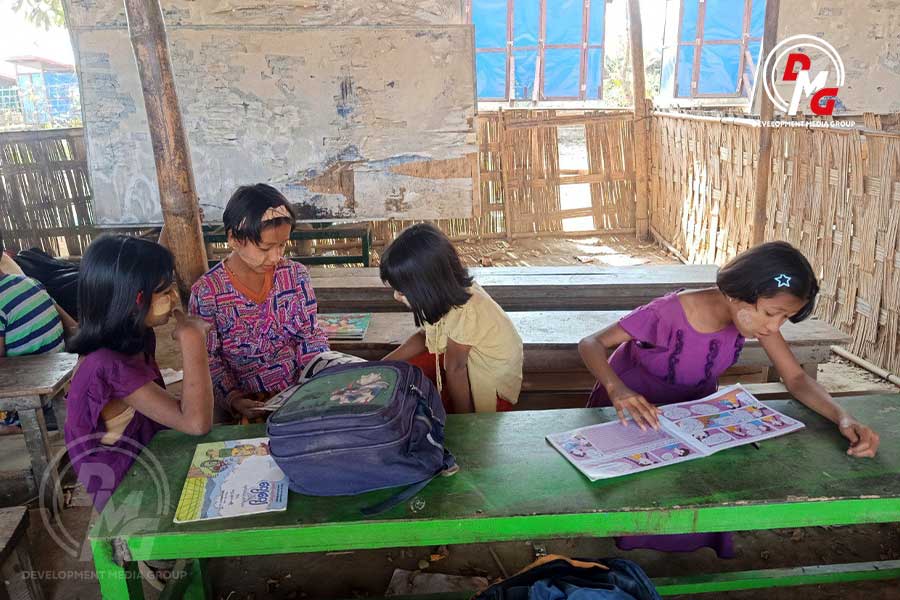








.jpg)